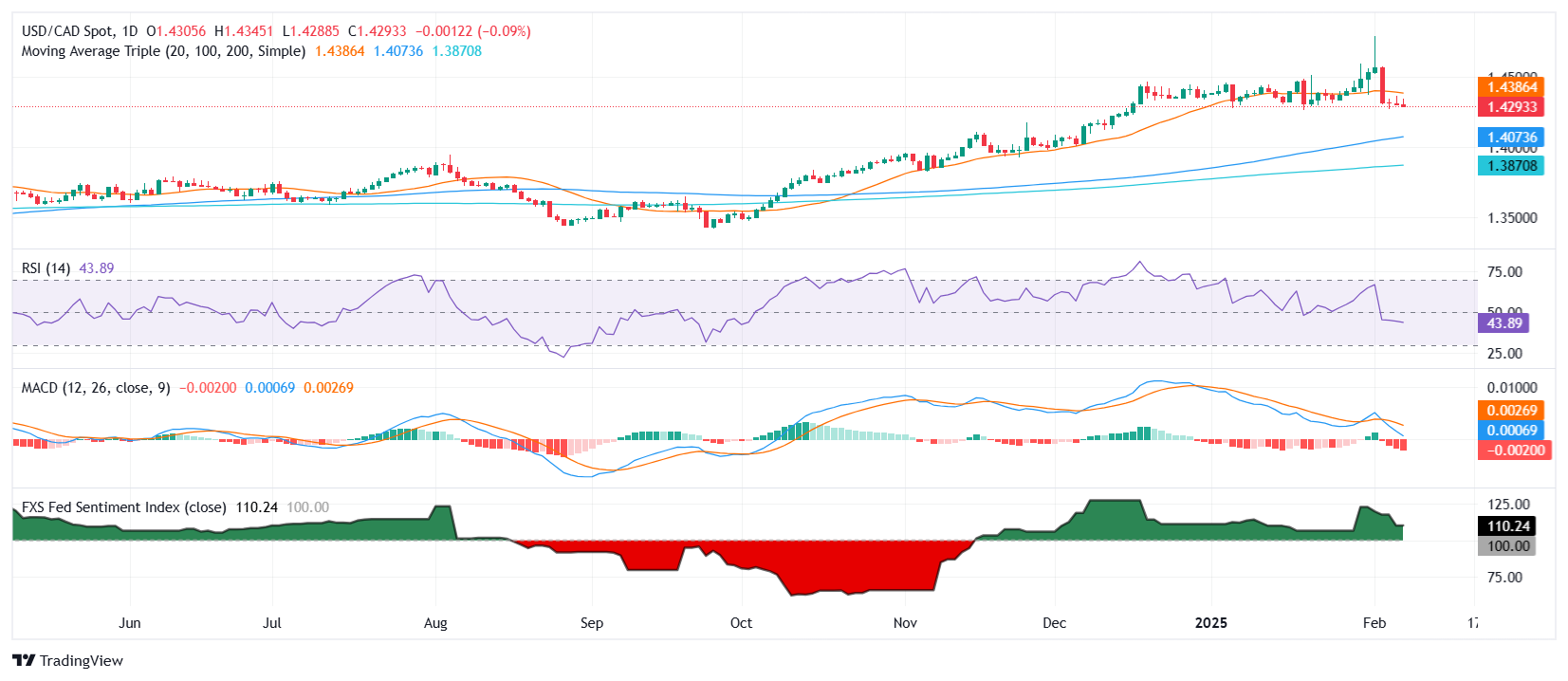USD/CAD declines after mixed US job report
- USD/CAD retreats to 1.4305 after softer-than-expected US NFP data.
- US Unemployment declined to 4% while hourly earnings remained stable.
- Canadian unemployment falls to 6.6%, but remains above forecasts.
The USD/CAD pair pulled back to 1.4305 following the release of January's Nonfarm Payrolls (NFP) data, which fell significantly short of expectations. The report showed the US economy added just 143K jobs, well below the 307K forecast, triggering a pullback in the US Dollar. Meanwhile, the unemployment rate ticked down to 4%, aligning with market projections, while wage growth remained firm.
While the headline NFP figure disappointed, wage growth remained stable. Average hourly earnings rose by 0.5% month-over-month as expected, while the annual figure edged up to 4.1%, surpassing the 3.9% estimate. Additionally, the labor force participation rate improved slightly to 62.6% from 62.5%, suggesting continued resilience in employment metrics despite weaker hiring trends.
On the Canadian side, unemployment declined to 6.6%, improving from 6.8% but still exceeding the projected 6.7%. The data suggests that while job conditions in Canada have somewhat improved, lingering softness in the labor market could keep the Bank of Canada (BoC) cautious regarding future rate adjustments.
USD/CAD Technical outlook
USD/CAD retraced to 1.4305, marking a moderate pullback but indicators including the Relative Strength Index (RSI) and Moving Average Convergence Divergence (MACD) look weak on the daily scale. The pair remains in an downtrend in the short-term after losing the 20-day Simple Moving Average (SMA), but buying pressure could persist if sellers fails to secure the 1.4300 support zone.


